Planning for retirement
By Simon Donell,
Retired Orthopaedic Surgeon, Stapley, Somerset
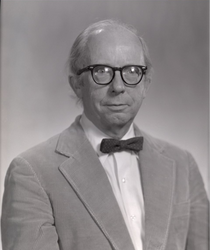
"It’s time I stepped aside for a less experience and less able man".
— Scott Elledge (1914-1997) Professor of English. Cornell University, USA
1976 portrait from Department of Photographic Services record #4-3-2282, Division of Rare and Manuscript Collections, Cornell University Library
When I was in my 30s I looked up to the senior surgeons and noted their political clout. In my 40s I made efforts to join them. As I progressed up the ladder I noted how the senior surgeons, when they retired, still liked to influence the orthopaedic societies. My thoughts were “You’ve had your turn. It’s time you moved on”. Retirement is a huge change professionally. The most important point is that your political power, whether locally or nationally, dissipates rapidly. At your workplace that loss starts when you officially announce your retirement date. Note that American Presidents in their first term state that they will do a second term (whatever their age) or they instantly become a lame duck.
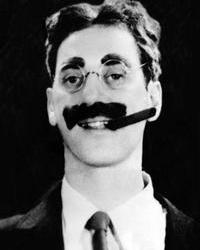
"There’s one thing I always wanted to do before I quit... retire!"
— Julius Henry “Groucho” Marx (1890-1977)
1931 photograph by Ralph F Stitt, Rivoli Theatre, New York
Life is a series of ups and downs. The downs can be precipitated by unexpected adverse events, and also predictable ones. Retiring is one of those. In one of my many car journeys to work listening to the radio, I remember a 29 year old Canadian woman, who had recently been one of the National Basketball team members for nearly a decade but had been dropped when a new coach was appointed. Life was suddenly a down. It devastated her. For most of her adult life she had defined herself as a Canadian National Basketball player. Now she was nobody.
Whilst you are working you define yourself as an orthopaedic surgeon. When you retire you will no longer be an orthopaedic surgeon. You want to avoid becoming a nobody. If asked, I define myself as retired. Few people then ask what I did; they ask about what I do now. I now have a project renovating a farm and increasing biodiversity on its land. I revoked my licence to practice but kept my GMC registration to keep my medical hat as well as an honorary professor at the Norwich Medical School. I have an interest in paleomedicine and history of medicine. I do not partake in annual appraisal, revalidation, or mandatory training. Those I gave up with a sigh of relief. So I define myself as retired.
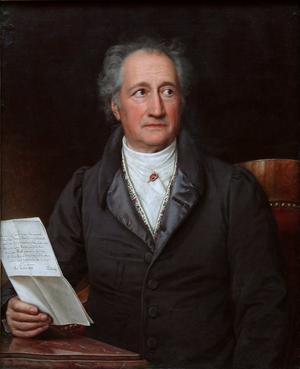
"Many people take no care of their money till they’re nearly at the end of it, and others do just the same with their time".
— Johann Wolfgang von Goethe (1794-1832)
Oil-on-canvas painting by Joseph Karl Stieler (1781-1858) date 1826.
If you Google “Retirement planning” it is almost exclusively about financial planning. This is easily resolved by finding a financial advisor who can take you through the twists and turns of state, NHS, and private pensions. You can even do a course at the Open University course on planning for retirement linked with Legal & General, but there is little on the non-financial considerations. I should add that any voluntary work that you do when retired is not given for free, it is paid by the public purse through your pension, assuming you stayed in NHS practice.
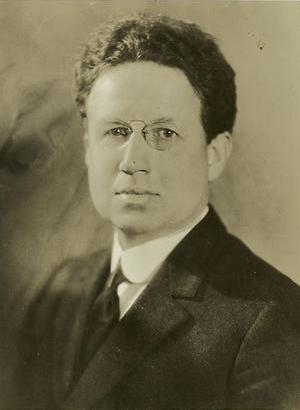
"Don’t simply retire from something; have something to retire to"
— Harry Emerson Fosdick (1878-1969) American Pastor
1926 New York Public Library
Retirement has been defined as having five emotional phases (www.caringplaces.com/what-are-the-five-stages-of-retirement):
Phase 1 - Pre-Retirement
This typically occurs when you have completed your training and have become established as a consultant or your final senior position. It involves financial planning for retirement, and preparing psychologically for the change. It takes a number of years. As retirement gets closer you can contemplate your new life and start getting excited about it.
Phase 2 - Honeymoon
This follows getting through actually retiring and arriving at the sense that life is a perpetual holiday. You engage in your hobbies and see family and friends. Some will carry on with activities much the same as when they were working, others just relax and choose a leisurely lifestyle. There is no correct way, it depends on your individual interest and needs. This may last a number of years.
Phase 3 - Disenchantment
Boredom and restlessness takes over. This is the time to find new things to do, focus on family and friends, or find ways to help in the community. This is a way to find a purpose and feel valued, otherwise depression or loneliness may occur.
Phase 4 - Re-orientation
For many this is the most difficult phase and it involves reinventing yourself and defining who you now are. It involves re-orientating yourself from being an orthopaedic surgeon and becoming somebody else.
Phase 5 - Stability
This is the final phase where you have a renewed sense of self and hope for the future. For some it may take over a decade. From now on you can enjoy the 'golden years' that are left.
I would suggest that with proper planning phases 2 to 4 can be avoided.
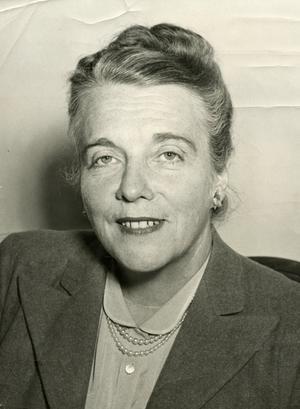
"Retirement, I feel, means a new adventure in living – not a stopping".
— Anna Marion Hilliard (1902-1958) Canadian physician
Portrait photograph Nation Valley News archive www.nationvalleynews.com [Courtesy of the Archives of Women’s College Hospital, Toronto]
Specific points for orthopaedic surgeons to note are:
- Sort out your hospital emails and personal folders on your computer in the month before you retire. Access to your hospital computer and personal folders and hospital emails stops the day after you retire
- Inform your professional societies including BOA, GMC, RCS, journals etc to cancel subscriptions or get retired members rates
- Inform your medical insurance company and check on legacy cover
- Keep your private practice notes and accounts and remember data protection legislation. Destroy the notes at the relevant time periods if you do not want to keep them
For some a decision may have to be made about moving to a new home in a different location. If this is away from established social groups, it is better made earlier in retirement than when old and infirm. Consideration should also be made about where to live when old and infirm.
For those with a private practice, including medico-legal work, I stopped mine 1 year before I retired. It is surprising how colleagues are happy to take over your patients, and how long it takes for the legal side to clear.
For those in academia, it takes about 5 years to wind down an academic practice, especially if you have doctoral students on the go; completing their theses and the follow-up publications tend to take that long. There are also projects and grants that are ongoing you may want to see to the end. I still sit on research oversight committees which nowadays tend to meet on-line.
Finally, the British Heart Foundation suggests Twenty tips for a happy retirement, which are universal:- Get your finances in order
- Wind down gently
- Prepare for ups and downs
- Eat well
- Develop a routine
- Exercise your mind
- Keep physically active
- Make a list
- Seek social support
- Make peace and move on
- Go for a health check
- Keep in touch with your friends from work
- Pamper yourself
- Practise mindfulness
- Give back to the community
- Be one with nature
- Travel more
- Get a new pet
- Push your boundaries
- Take up a new project
Personally I would avoid a new pet if I want to travel more.
"Retirement is the beginning of the time when you can sit back and give advice to others, even though you never followed it in your life".
— Anon
Although I am retired, it is as a consultant orthopaedic surgeon. If you stop learning and using mental effort, you are de-mented. If you stop being physically active and interacting socially, you are not retired, just tired of life.
